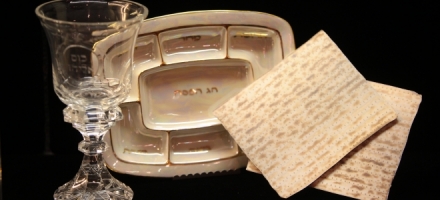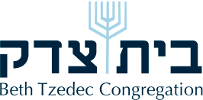
Pesaẖ
The eight-day festival of Pesaẖ is celebrated from the 15th through the 22nd of Nissan, and commemorates the emancipation of the Israelites from slavery in ancient Egypt.
After many decades of slavery to the Egyptian pharaohs, God saw the people’s distress and sent Moses to Pharaoh with a message: “Send forth My people, so that they may serve Me.” But despite numerous warnings, Pharaoh refused to heed God’s command and God sent ten devastating plagues, afflicting them and destroying everything from their livestock to their crops.
At the stroke of midnight of 15 Nissan in the year 2448, God visited the last of the ten plagues on the Egyptians, killing all their firstborn. But He spared the Children of Israel, “passing over” their homes—hence the name of the holiday. Pharaoh’s resistance was broken, and he virtually chased his former slaves out of the land. The Israelites left in such a hurry, in fact, that the bread they baked as provisions for the way did not have time to rise. Six hundred thousand adult males, plus many more women and children, left Egypt on that day, and began the trek to Mount Sinai and their birth as God’s chosen people.
Pesaẖ is divided into two parts:
The first two days and last two days are full-fledged holidays. Holiday candles are lit at night, and kiddush and holiday meals are enjoyed on both nights and days. We don’t go to work, drive, write or switch on or off electric devices. We are permitted to cook and to carry outdoors. The middle four days are called chol hamoed, semi-festive “intermediate days,” when most forms of work are permitted.
To commemorate the unleavened bread that the Israelites ate when they left Egypt, we don’t eat—or even retain in our possession—any ẖametz (leavened grain) from midday of the day before Pesaẖ until the conclusion of the holiday. This requires a full spring cleaning during the weeks before, and culminates with a ceremonial search for ẖametz on the night before Pesaẖ, and then a buring of ẖametz ceremony on the morning before the holiday. H̱ametz that cannot be disposed of can be sold to a non-Jew for the duration of the holiday.Instead of ẖametz, we eat matzah—flat unleavened bread. It is a mitzvah to partake of matzah on the two Seder nights, and during the rest of the holiday it is optional.
The highlight of Pesaẖ is the Seder, observed on each of the first two nights of the holiday.
Join Us
Prior to Pesaẖ, why not bring the entire family for one last taste of ẖametz at the Beth Tzedec Pre-Passover Family BBQ Dinner without having to worry about cleaning up the crumbs? One of the Klei Kodesh will be available to assist you in the selling of ẖametz. Join us on the lower level parking lot where we burn our remaining ẖametz. During Pesaẖ, services feature Hallel and Festival Musaf, including the changing of Tal, the prayer of Dew, on the first day led by H̱azzan Spiro and the Beth Tzedec Singers. On Shabbat Hol Hamoed Pesah, join us at Minẖah as we read Shir Hasirim, Song of Songs, and perhaps you can learn to chant a chapter.
Babies on the Bimah
A Very Special Shavuot Bikkurim
In ancient Israel on the festival of Shavuot, Jews would gather at the Temple in Jerusalem, bringing the first fruits of their harvests in gratitude and remembrance of the day we received the Torah at Mount Sinai. We still gather at this time every year.
Please join us in marking the occasion by bringing the most precious "first fruits" of this past year--all the babies who have been born in our Beth Tzedec congregational family!
We invite you, your family, and little one to a festive Shavuot brunch. Meet and connect with other new parents, participate in a special holiday Circle Time, followed by "Babies on the Bimah"—a Beth Tzedec baby processional, when they'll receive a blessing and special gift.
Everyone is welcome to attend. Pre-registration is required for the babies. To register, click HERE.
Event Details
- For Registration:
- Cantor Audrey Klein
- Phone:
- 416-781-3511
- Cost:
- No charge
- Sponsor:
- This program is generously supported by the Flatt Family in memory of Ab Flatt (z"l)
Categories
- Festivals & High Holy Days
- Seniors
- Adults
- Families



